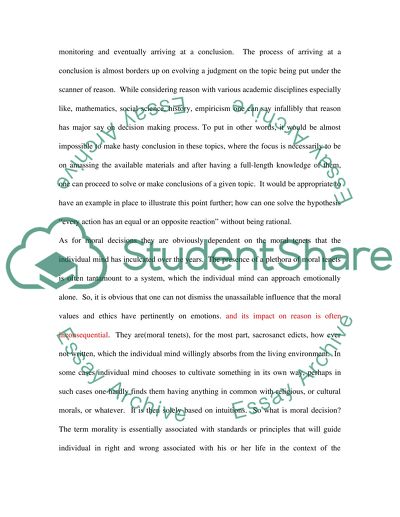Cite this document
(“Theory of Knowledge: Emotion and Reason in Evolving Moral Decisions Essay”, n.d.)
Theory of Knowledge: Emotion and Reason in Evolving Moral Decisions Essay. Retrieved from https://studentshare.org/psychology/1539319-theory-of-knowledge
Theory of Knowledge: Emotion and Reason in Evolving Moral Decisions Essay. Retrieved from https://studentshare.org/psychology/1539319-theory-of-knowledge
(Theory of Knowledge: Emotion and Reason in Evolving Moral Decisions Essay)
Theory of Knowledge: Emotion and Reason in Evolving Moral Decisions Essay. https://studentshare.org/psychology/1539319-theory-of-knowledge.
Theory of Knowledge: Emotion and Reason in Evolving Moral Decisions Essay. https://studentshare.org/psychology/1539319-theory-of-knowledge.
“Theory of Knowledge: Emotion and Reason in Evolving Moral Decisions Essay”, n.d. https://studentshare.org/psychology/1539319-theory-of-knowledge.


